- Home
- Hammond Innes
High Stand Page 5
High Stand Read online
Page 5
It was past midnight before I was across the westbound shipping lane and content to leave it to the windvane steering and go below. It was then, in the lamplit warmth of the saloon, with my pipe and a malt whisky, that I read the rest of Miriam’s letter. It was an unusual letter because it was full of description, and what she was describing was a very strange part of the world. And I’m being followed. That was on page 2, the words leaping out at me. You’ll think I’m crazy, but it’s true. Every time I leave the hotel, he’s there, dogging my footsteps. And it’s not my imagination. I’ve checked, by doubling back through the hotel. It has two entrances, the front on Wood Street, and the back down a long corridor, past a shop full of lovely Arctic prints and out onto Steele Street, which is where the travel agents all seem to hang out. He’s a very small man with a lined, craggy face, high cheek- bones and puffed eyelids, very black, straight hair—not unlike some of the Indians that hang about the streets here. Perhaps it’s just that a woman walking around this northern frontier ‘own on her own is a bit of an oddity. Talking of Steele Street, wasn’t Steele the Mountie Tom used to talk about, the man who ran the North virtually singlehanded back in ‘98? And then she was describing Whitehorse, the frontier atmosphere of it, the grid pattern of dirt-impacted streets, the fine government building down by the Yukon River within tight of the old white wooden steamboat that lies like a stranded whale on the far side of the bridge, the mixture of gold rush and modern buildings, the bellow of the train coming in from Skagway in Alaska. It’s all so strange, so exciting . . I’m sleepy now. It’s the dry air. Tomorrow I have a hire car and will be driving the Alaska Highway to Haines Junction, then down the Haines Highway to Lakeside Lodge, which is beside a lake called Dezadeash. After that I’m told I’ll need a four-by-four, which is what they call a four-wheel-drive truck. Looks like I’ll have to see if I can charm one of the locals. Bumming a ride from Dalton’s Post up to Ice Cold will be quite something. It’s right on the edge of the Kluane, which according to my lodge brochure is an tee wonderland of 8500 sq. miles that includes the highest mountain range in North America, icefields that are the largest anywhere in the world outside of polar regions, masses of glaciers and one that ‘gallops’. Half the men around here seem to be Indians and the whites wear braces and coloured shirts and wide-brimmed sweat-stained hats. Getting one of them to drive me into the Noisy Range area should exercise my talents’ Anyway, you can imagine how excited I am about tomorrow. I’ll be right under the ‘Front Ranges’ of the Kluane (they pronounce it Klewarny) .. . Then she had scribbled: I’ve got the car, I’m on my way. I’ll leave this at the desk. If you don’t hear from me you’ll know I’m lost in the Kluane. I can see my ‘follower’ watching from across the road. Do you think he’ll jump into a pick-up and follow me when I drive off down the Alaska Highway in my little Ford? Love. M. I didn’t give much thought to her claim that she was being followed. Her description of Whitehorse, stuck out there in a dark wilderness of spruce with the Yukon flowing deep and fast alongside the railroad track, would presumably make any visitor an object of curiosity, particularly a lone woman. In any case, Miriam was not above a little sex play, even in present circumstances. What interested me far more was the fact that she had written to me — and the effect it had on me, which my secretary had noticed. I had seen her recognition of it reflected in her eyes, and now, still in my oilskins, slumped on my bunk, the sound of water moving along the skin of the hull and the lift and fall of the westerly swell making me sleepy, I could see her face so clearly, the casual way she tied the scarf at her throat, the hair glinting with that Titian warmth in the sunlight of my office, the large, almost greenish-blue eyes…
I stuffed the letter back into the old briefcase I had propped at the rear of the fold-down shelf that was both eating surface and chart table and poked my head up into the plastic observation dome. A cluster of lights on the port bow, probably fishing vessels trawling one of the banks, the lighthouse on Dungeness blinking clear and bright to the east, and my mind still on Miriam driving the Alaska Highway, enticing some wild stranger to take her up the track from Dalton’s Post to the mine on the upper reaches of Ice Cold Creek.
She was with me all that night, which was a very broken one, the alarm waking me every twenty minutes. There is too much traffic in the Channel for a lone sailor to risk much in the way of sleep and the thought of Miriam, going up into the arctic north of Canada on her own to find out what the hell had happened to that mine… to go off like that, pinching the silver to pay for the trip, and here was I, bumbling across to Fecamp, never having been further afield than Europe in my life. Quite a girl, I thought, knowing that I was half in love with her and that if I let it take hold I’d be in trouble. Miriam was too hot a property for me to handle. I was smiling to myself, a sort of fixed grin - I could feel the muscles of my mouth creased up as I savoured the word ‘property’, thinking of that night on the downs, the urgency of her. It was just past three, the eastern sky paling to the first breath of dawn, and I was tired.
When the sun rose I could see the coast of France, and by midday my little boat was lying snug in Fecamp and I was sitting alone at a cafe eating a croissant and drinking a cognac with my coffee, the first single-handed sail in my own boat completed. I should have felt excited, filled with a sense of achievement, but in fact I felt nothing. If I had had somebody to share it with …
I went back on board and lay on my bunk, too tired, and my nerves still too tense, for sleep, my mind groping with a feeling of emptiness — a house, an office, clients, and now a boat. It was quite an achievement, starting from nothing, and yet it seemed so hollow, lying there alone on my bunk, the sound of French voices all around me, families arguing and the laughter of youngsters. Was that what life was about, the shared happiness of the smallest and most basic of tribal units ? And I dealt in death and family disaster, sordid squabbles over money.
I had a night in Fecamp, with a lonely meal in a restaurant and then a round of portside bistros getting gradually a little tight on Armagnac, and early on the Sunday morning I sailed out with the wind south-west force 6 and a rising sea that was soon breaking quite viciously. I wasn’t thinking of Miriam then. It was raining and visibility poor, but at least I had a fast passage and the next morning I was in court arguing a paternity case.
My young partner was back and life was suddenly easier, my own holiday only two weeks away. The following morning I heard from Miriam again, just a postcard showing timbered cabins dark against a brilliant sunrise reflected in the pewter surface of a lake, and across the middle of it, in bold black type:
LAKESIDE LODGE
DEZADEASH
Mile 123 Haines Highway
On the back she had scribbled:
I’m in luck. An Italian from Medicine Hat - what a name for a birthplace! - a real nice guy with a 4 x 4 who spends the summer working a claim on the Squaw. Our creek runs into it, he knows the way and we leave in the morning. It really is very exciting, everybody so kind, but the word is that l.C. is cleaned out. Will write you again when I get back to Whitehorse. How’s the boat — happy sailing! M. That was the last I heard from her. She never wrote from Whitehorse, or from anywhere else. I couldn’t blame her. It was nice of her to think of me, but I was under no illusions. She had been alone in Whitehorse and I suppose I was uppermost in her mind at the time, so closely connected with what had happened, but once she had got used to the country and begun to make new friends her need of any contact at home would have receded. Indeed, England would probably seem as remote as the Yukon did to me and she had already indicated that the mine was finished. She probably felt there was nothing more to say, but it irked me all the same, and though I was very busy running in my new partner and getting to grips with the boat, I still found it difficult to get her out of my mind. Once I drove over to Bullswood House to see that everything was all right. The staff were provided for - I had checked that already. Miriam had sent them a quarter’s wages in advance before leaving for C
anada. Mrs Steading, the housekeeper, opened the door to me. ‘Mr Brian still here?’ I asked her.
She shook her head.
‘Did he leave an address?’
Again the negative shake of the head. She was a small, very quiet woman, born locally and still living in the village. ‘Never said a word. One day he was here, the next he was gone.’ I already knew that she didn’t approve of him.
‘Anything missing?’ I asked. I had had to find out about the silver myself, but now she didn’t hesitate. ‘Two pictures,’ she said, and she took me into Tom Halliday’s study, pointing to where they had hung, one on either side of the sad-looking moose that dominated the fireplace. I remembered them vaguely, two small ship pictures, very Dutch. ‘Mr Halliday thought a lot of them.’ I wondered who they were by, how much his son had got for them, whether he had flogged them to a picture dealer in the Lanes in Brighton or taken them up to London, to the Portobello Road, something like that, where they’d never be traced. ‘Have you mentioned it to anybody else?’ I asked her.
She shook her head. ‘None of my business, but since you asked I’ve told you.’
‘Very proper of you, Mrs Steading,’ I said, wondering what the hell to do about it now she’d told me. I couldn’t really blame either of them, Miriam using the money to take a look at the mine, and Brian - where had he gone, back to India and his Himalayan guru? Or had he gone to stand guard over those Cascades trees? I sat down for a moment at Tom Halliday’s desk, my eyes going involuntarily to that extraordinary photograph of his father dancing and shouting for joy there by the wooden sluice box, his teeth gleaming and his hand with the pan in it held out, the snow on the mountain behind him yellowish-white and speckled with damp marks.
The housekeeper had left me. I could hear her moving about upstairs. I went through the drawers quickly, none of them locked and all of them full of the usual backlog of papers, bank statements, old cheque stubs, and in the top right-hand drawer the timber sale agreements. As his son had said, the sale agreements and related correspondence, including felling and towing contracts and forestry reports from a consultant in Campbell River, Vancouver Island, went back seven years with new agreements every six months and the payments steadily declining. All the agreements were with Canadian companies, except the last, which was with SVL Timber and Milling Coy. Inc. of Seattle, and with this contract there were no felling and towing contracts, only a letter from the forestry consultant advising that the American company was more cost-effective in its felling and towing arrangements and was therefore offering a better price, having also outlets in the mid-west of America, particularly Chicago.
I made a note of the dates of those agreements, also the address of the Vancouver solicitors who had drawn them up. Then I was sitting back, looking up again at the wall above the desk, thinking of Tom - and of Miriam, the life they had shared together in this house. By now she would have been where the sluice box in that photograph had stood, where young Josh Halliday with the ridiculous drooping moustache and the battered hat had proved a dud mine so full of gold that it had given him and his son a steady flow of wealth for the better part of a century. Was there anything here she would want to keep if he didn’t turn up, anything personal -of Tom or the mine? Idly I began opening the drawers of the desk, not looking for anything specific, just thinking how odd it was to be sitting there in Tom’s study, everything just as it was when I had last been to dinner, and soon perhaps it would belong to somebody else who would probably change it all round, throw out that photograph and the moose head and the bits and pieces of mine equipment that hung on the walls and lay scattered about the hearth. I was surprised Brian hadn’t taken the photograph, a reminder of the man who had planted High Stand all those years ago.
The desk was an old one, Queen Anne by the look of it, a lovely silky walnut, the top slightly stained with ink, a letdown flap and little drawers and pigeonholes full of note-paper, envelopes and postcards. I had seen one rather like it in the home of a retired oil man and I moved my hands gently across the flat wood below the pigeonholes, feeling for movement. That’s how I found it, a secret well with a sliding top, the space beneath broad and shallow, and in it a gold Hunter with a flip-up top and a tinkling chime, a gold chain with a nugget of rough gold about the size of a lump of sugar, and beside it a slim book, rather like a ledger, the ink faded to a dull brown.
It was Joshua Halliday’s diary. It began on 20 July 1898:
My birthday, and everything I own now aboard this ship. A great number of people too, many, like me, with stores, also horses, some bullocks, several big cast-iron stoves, and the SF waterfront crowded, the hubbub of excitement swelling all the time, thrilling me through and through. So much hope, every man I speak with sure he will strike gold and come back a millionaire. I turned the pages. Shipboard life. Seattle. Vancouver, 5 September: This day we reached Skagway. Great excitement, but also chaos. So many people ashore, tents and makeshift huts, the squalor and the stench - and rising above this wretched encampment the mountains we have to cross.
After that entry the writing became less copperplate, in places quite shaky, the ink often giving way to pencil scribblings that were so faint the words were difficult to decipher. But it was all there — how he’d cut across the frozen expanse of a lake called Bennett and made it to Dawson in the depth of winter and then to the Dalton Trail and the Squaw. / was about done when I started up the Ice Cold, my breath freezing on my beard, the range all white, and next day the wind came westerly, thick mist and the snow melting to slush on the surface, like ice underneath. That was the first day of April and next morning he had reached the claim.
I sat back, staring up at that photograph. Was this how Tom had first read the diary, sitting at his desk with that faded photograph hanging on the wall in front of him, or had he gone out to Vancouver Island on his father’s death and read it there? Whichever way it was, he had certainly had it here at this desk. I picked up the watch with its chain and nugget and slipped it into my pocket, certain Miriam would prefer to have it kept safe in a strong room, particularly now she had been out to the mine.
I glanced at the other relics, the battered metal pan on the wall behind me, the bits and pieces of iron and wood by the hearth. I wasn’t sure whether the pan was the one with which he had made the first find. There was a bit of a shovel, all rusted into holes and carefully blackleaded, a cartridge bandolier, a military-type water bottle, two rusted tins of corned beef and, slung above the mantelpiece below the moose head, a long-barrelled rifle with the wood of the butt half rotted away, barrel and stock pitted with rust. They were the sort of things you would expect to find discarded round an old camp site, rotting in the damp air.
I closed the diary, tucked it under my arm and got to my feet. I took the photograph too. I told Mrs Steading, of course, but not about the diary and the watch, and when I got back to the office, I put them away in the Halliday deed box, and that was that, my mind switching to other things, the oil man dying of cancer and all his affairs to cope with in a rush.
The last days of August had slipped away in a blaze of summer heat and now we were well into September and it was raining, my first real holiday less than a week away. I took the boat down to Bembridge. No word from Miriam, and her husband still missing. The following day I set off for Brittany with a girl I had met only once, at a party given by a client, and it didn’t work out. It was a beat all the way, quite rough at times, and she was seasick. She left me at Paimpol, and it was after that, when I was on my own, starting to rock-hop westward along the coast, that I began thinking of Miriam again and how it would have been if I had had her on board, wondering what she was up to, who she was with - why, after that postcard and her visit to the mine, she hadn’t bothered to write.
I was becalmed for a whole day by Les Sept lies with nothing to do but listen to the radio. That was when I started to worry about her. It was two weeks now, a little more. After Whitehorse she would probably have gone down to Vancouver, or Vic
toria, where Tom at any rate would have had friends but, however hectic the social life, it seemed strange she had not written to me again, if only to make certain that I was keeping an eye on the house.
It was there, in the solitary confinement of my little boat, with the moon coming up and the sails slatting, not a breath of wind, that I made up my mind. It wouldn’t take more than a week at the outside, and even if she had forgotten all about me, and her promise to write after she’d been up to the mine, it would at least settle the nagging thought that something had happened to her. And at the same time I could check for myself whether the mine was really exhausted, possibly see the BC property and that stand of timber in the Cascades valley.
In the early hours of the morning, just as dawn was breaking, the wind came in from the west again and it began to cloud over. I turned the boat about and headed for home. And when I got there my partner told me over the phone that we had received a reply to the letter I had sent to the solicitors in Vancouver before I had started on my holiday. It stated unequivocally that the previous year’s September timber sale agreement was the last they had drawn up for Mr Halliday. But he had been into their office on Thursday the fifteenth of last month to enquire about the possibility of selling the whole Cascades property through a nominee, or perhaps forming a special trust to handle the sale. They had not seen him since, only Mrs Halliday who had been in to see them on 9 September, which was the day I had received her postcard. His manner at that meeting in August was described as ‘quite normal, but not relaxed’. And the letter concluded with the words - ‘we have no reason to suppose our client was ill, nor did he show any indication of being on the verge of a nervous breakdown or any other disturbance that would account for his disappearance’. It was signed McLaren & Partners.
Two days later I was on a Wardair flight out of Gatwick bound for Vancouver across the top of the world.

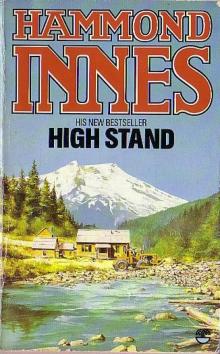 High Stand
High Stand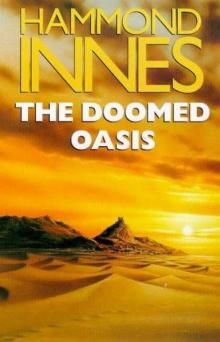 The Doomed Oasis
The Doomed Oasis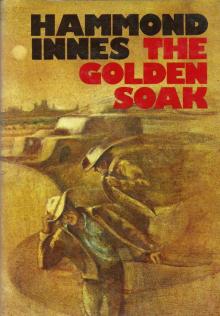 Golden Soak
Golden Soak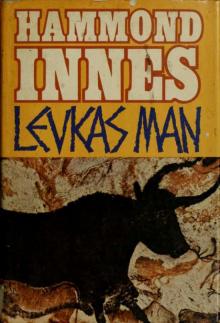 Levkas Man (Mystery)
Levkas Man (Mystery)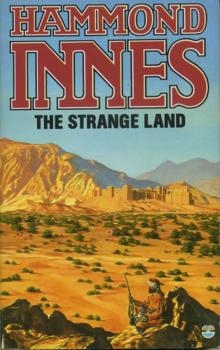 The Strange Land
The Strange Land Dead and Alive
Dead and Alive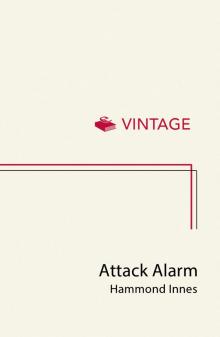 Attack Alarm
Attack Alarm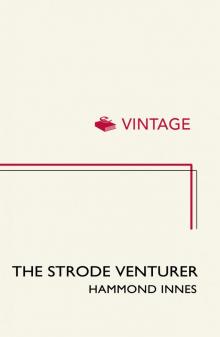 The Strode Venturer
The Strode Venturer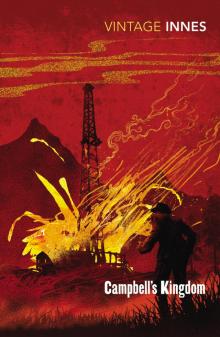 Campbell's Kingdom
Campbell's Kingdom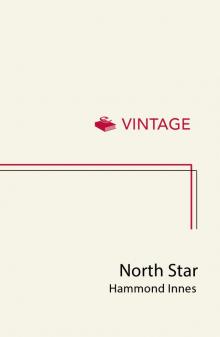 North Star
North Star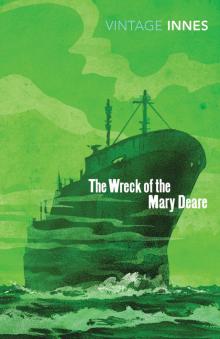 The Wreck of the Mary Deare
The Wreck of the Mary Deare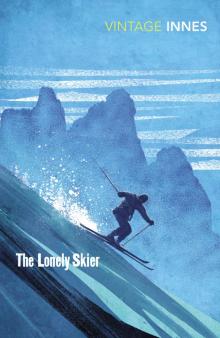 The Lonely Skier
The Lonely Skier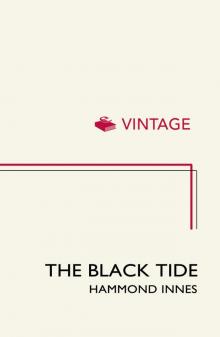 The Black Tide
The Black Tide The Trojan Horse
The Trojan Horse Medusa
Medusa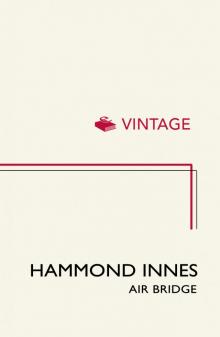 Air Bridge
Air Bridge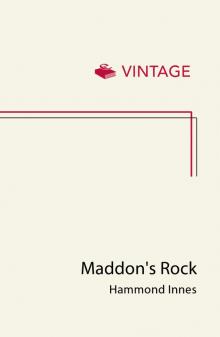 Maddon's Rock
Maddon's Rock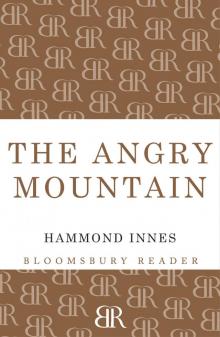 The Angry Mountain
The Angry Mountain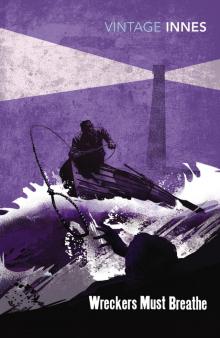 Wreckers Must Breathe
Wreckers Must Breathe Solomons Seal
Solomons Seal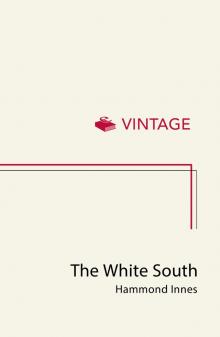 The White South
The White South